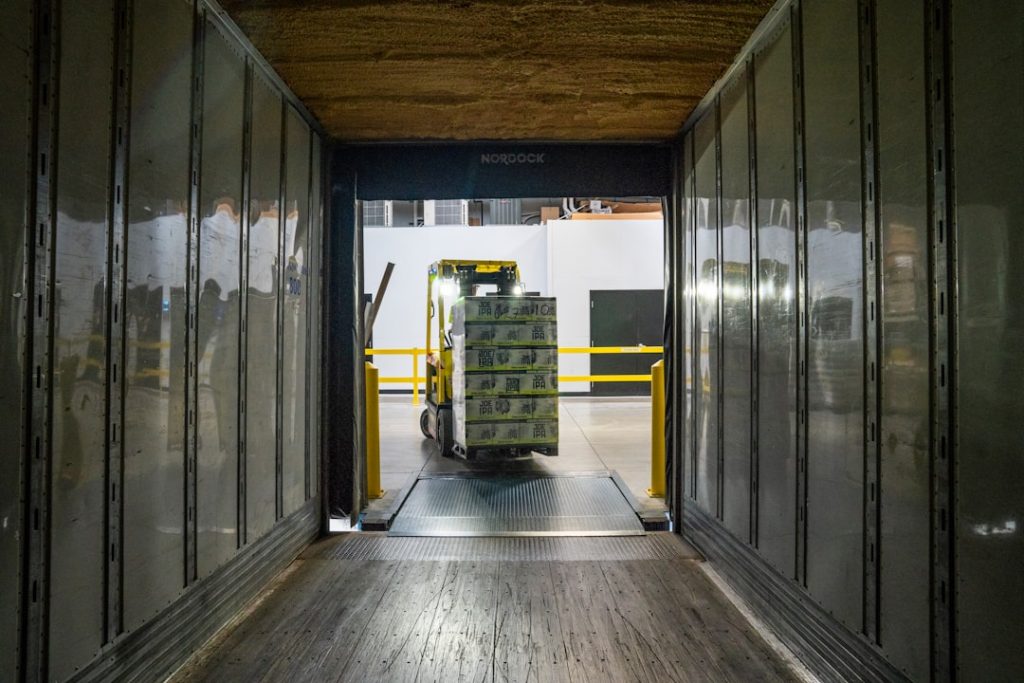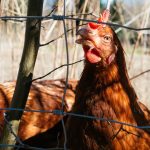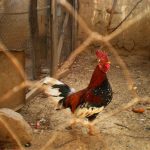Raising chickens can be both rewarding and challenging for farmers. One common issue faced is a decrease in egg production, which can be attributed to various factors including lighting conditions, nesting boxes, feed intake, breeding schedule, and egg collection methods. Understanding these root causes is essential for farmers to effectively address the problem and improve their overall egg yield.
Lighting conditions play a significant role in egg production. Chickens require a specific amount of daily light exposure to stimulate their reproductive systems. Insufficient light can lead to a slowdown in egg laying.
Seasonal changes in daylight hours also impact egg production. Chicken farmers must comprehend the relationship between lighting and egg laying to make necessary adjustments to their coops and maintain consistent production levels.
Table of Contents
- 1 Adjusting Lighting Conditions
- 2 Providing Adequate Nesting Boxes
- 3 Monitoring Feed Intake
- 4 Implementing a Breeding Schedule
- 5 Collecting Eggs Promptly
- 6 Seeking Professional Advice
- 7 FAQs
- 7.1 What are the reasons for wanting to keep chickens from laying too many eggs?
- 7.2 How can you keep chickens from laying too many eggs?
- 7.3 What is the impact of excessive egg laying on chickens’ health?
- 7.4 How can you adjust the chickens’ diet to reduce egg production?
- 7.5 What role does light exposure play in controlling egg production in chickens?
- 7.6 Are there any natural methods to reduce egg production in chickens?
Key Takeaways
- Understanding the Problem: Recognize the importance of addressing lighting conditions and nesting boxes for optimal egg production.
- Adjusting Lighting Conditions: Ensure proper lighting to stimulate egg laying and maintain consistent production.
- Providing Adequate Nesting Boxes: Create a comfortable and safe environment for hens to lay eggs.
- Monitoring Feed Intake: Keep track of the hens’ feed consumption to ensure they are receiving adequate nutrition for egg production.
- Implementing a Breeding Schedule: Plan and execute a breeding schedule to maintain a steady supply of eggs.
- Collecting Eggs Promptly: Regularly collect eggs to prevent them from being damaged or becoming dirty.
- Seeking Professional Advice: Consult with experts or professionals for guidance on maximizing egg production and maintaining a healthy flock.
Adjusting Lighting Conditions
Supplementing Natural Daylight with Artificial Lighting
Chicken farmers can address the issue of decreased egg production due to inadequate lighting by installing artificial lighting in their coops. This helps supplement natural daylight and ensures that chickens receive the appropriate amount of light each day, which is especially crucial during the shorter winter months.
Implementing a Consistent Lighting Schedule
Farmers can use timers to control the lighting schedule and provide a consistent 14-16 hours of light per day, stimulating egg production. This consistent lighting schedule helps regulate the chickens’ biological rhythms, leading to improved egg yields.
Creating a Comfortable Environment through Ventilation and Natural Light
In addition to artificial lighting, it’s essential for chicken farmers to ensure their coops have adequate ventilation and natural light. This creates a comfortable and healthy environment for the chickens, which positively impacts their egg production. By addressing lighting conditions and making necessary adjustments, chicken farmers can mitigate the problem of decreased egg production and improve their overall yield.
Providing Adequate Nesting Boxes

Another factor that can contribute to decreased egg production is the lack of adequate nesting boxes for the chickens. Nesting boxes provide a safe and comfortable space for hens to lay their eggs, and if they are not provided with suitable nesting boxes, they may become stressed and reluctant to lay eggs. Additionally, overcrowding in nesting boxes can lead to competition among hens, which can further impact egg production.
It’s important for chicken farmers to understand the importance of providing adequate nesting boxes and take necessary steps to address this issue. To address the issue of inadequate nesting boxes, chicken farmers can ensure that there are enough nesting boxes available for their hens. The general rule of thumb is to provide one nesting box for every 4-5 hens.
This can help reduce competition and stress among the hens, leading to improved egg production. Additionally, nesting boxes should be kept clean and comfortable, with suitable bedding material such as straw or wood shavings. By providing adequate nesting boxes and maintaining a comfortable environment for the hens, chicken farmers can help address the issue of decreased egg production and improve their overall yield.
Monitoring Feed Intake
Another important factor that can impact egg production is the feed intake of the chickens. A lack of proper nutrition can lead to decreased egg laying, as hens require a balanced diet to support their reproductive systems. Additionally, changes in feed quality or availability can also impact egg production.
It’s important for chicken farmers to monitor the feed intake of their hens and ensure that they are receiving adequate nutrition to support healthy egg laying. To address the issue of decreased egg production due to feed intake, chicken farmers can take several steps. First, it’s important to provide a balanced diet that includes a mix of grains, protein, vitamins, and minerals.
This can help support the overall health and reproductive systems of the hens, leading to improved egg production. Additionally, it’s important to monitor feed quality and ensure that it is fresh and free from contaminants. By understanding the impact of feed intake on egg laying and taking necessary steps to provide a balanced diet, chicken farmers can help address the issue of decreased egg production and improve their overall yield.
In addition to providing a balanced diet, it’s also important for chicken farmers to ensure that their hens have access to clean water at all times. Dehydration can also impact egg production, so it’s crucial for hens to have access to fresh water throughout the day. By monitoring feed intake and ensuring that hens receive adequate nutrition and hydration, chicken farmers can help mitigate the problem of decreased egg production and improve their overall yield.
Implementing a Breeding Schedule
Another factor that can impact egg production is the breeding schedule of the chickens. Hens have a natural cycle of egg laying, and if they are not bred at the appropriate times, it can lead to decreased egg production. Additionally, age and health of the hens can also impact their ability to lay eggs consistently.
It’s important for chicken farmers to understand the breeding cycle of their hens and implement a schedule that supports healthy egg laying. To address the issue of decreased egg production due to breeding schedule, chicken farmers can implement a strategic breeding program that takes into account the natural cycle of egg laying. This may involve introducing new hens at specific times or removing older hens from the flock to make room for younger ones.
By understanding the breeding cycle of their hens and implementing a schedule that supports healthy egg laying, chicken farmers can help improve their overall yield. In addition to implementing a breeding schedule, it’s also important for chicken farmers to monitor the health and age of their hens. Older hens may have a decreased ability to lay eggs consistently, so it’s important to rotate out older hens and introduce younger ones into the flock.
By understanding the impact of breeding schedule on egg laying and taking necessary steps to implement a strategic program, chicken farmers can help mitigate the problem of decreased egg production and improve their overall yield.
Collecting Eggs Promptly

Establishing a Regular Egg Collection Schedule
To address the issue of decreased egg production due to delayed egg collection, chicken farmers should establish a regular schedule for collecting eggs from their nesting boxes. This may involve collecting eggs multiple times throughout the day or setting specific times for collection each morning and evening.
Proper Storage of Collected Eggs
By establishing a regular schedule for collecting eggs, chicken farmers can help ensure that hens remain motivated to lay new eggs and prevent breakage or spoilage from occurring. In addition to establishing a regular schedule for collecting eggs, it’s also important for chicken farmers to provide suitable storage for collected eggs. Eggs should be stored in a cool, dry place to prevent spoilage and maintain freshness.
Improving Overall Yield
By understanding the importance of collecting eggs promptly and taking necessary steps to establish a regular schedule for collection, chicken farmers can help mitigate the problem of decreased egg production and improve their overall yield.
Seeking Professional Advice
If despite all efforts there is no improvement in egg production then it is advisable for chicken farmers to seek professional advice from veterinarians or poultry experts who can provide guidance on how to address this issue effectively. These professionals have extensive knowledge and experience in poultry farming and can offer valuable insights into potential causes of decreased egg production and recommend appropriate solutions. Professional advice may include conducting thorough health checks on the chickens to identify any underlying health issues that could be affecting their ability to lay eggs consistently.
Additionally, experts may provide recommendations on adjusting feeding practices or implementing changes in environmental conditions within the coop that could positively impact egg production. Furthermore, seeking professional advice allows chicken farmers to stay updated on best practices in poultry farming and gain access to resources that can help them improve their overall yield in the long term. In conclusion, addressing decreased egg production in chickens requires a comprehensive approach that takes into account various factors such as lighting conditions, nesting boxes, feed intake, breeding schedule, and egg collection practices.
By understanding these factors and taking necessary steps to address them effectively, chicken farmers can help mitigate the problem of decreased egg production and improve their overall yield. Additionally, seeking professional advice when needed can provide valuable support in addressing this issue and ensuring the long-term success of poultry farming operations.
If you’re looking for tips on how to keep chickens from laying too many eggs, you might also be interested in learning about the benefits of having a garden chicken coop. This article on poultrywizard.com discusses how a garden chicken coop can provide a natural and comfortable environment for your chickens, which can help regulate their egg-laying. It also offers insights on the Producers Pride Sentinel Chicken Coop and the Chicken Coop 10, which are both great options for creating a healthy and balanced space for your flock.
FAQs
What are the reasons for wanting to keep chickens from laying too many eggs?
There are several reasons for wanting to keep chickens from laying too many eggs, including preventing stress and health issues in the chickens, avoiding overpopulation in the coop, and managing egg production for personal or commercial purposes.
How can you keep chickens from laying too many eggs?
There are several methods to keep chickens from laying too many eggs, including adjusting their diet, controlling the amount of light they are exposed to, and providing nesting boxes with fake eggs or golf balls to discourage excessive laying.
What is the impact of excessive egg laying on chickens’ health?
Excessive egg laying can lead to health issues in chickens, such as calcium depletion, reproductive problems, and increased risk of egg binding. It can also cause stress and behavioral issues in the flock.
How can you adjust the chickens’ diet to reduce egg production?
You can adjust the chickens’ diet to reduce egg production by providing a lower protein feed, limiting access to calcium-rich foods, and ensuring they have a balanced diet with adequate nutrients but not excessive energy for egg production.
What role does light exposure play in controlling egg production in chickens?
Controlling the amount of light exposure can help regulate egg production in chickens. By providing fewer hours of light or using artificial lighting to simulate shorter days, you can discourage excessive egg laying.
Are there any natural methods to reduce egg production in chickens?
Yes, there are natural methods to reduce egg production in chickens, such as allowing broody hens to hatch and raise chicks, which can temporarily interrupt their egg laying cycle. Additionally, providing a more natural environment with opportunities for foraging and dust bathing can help reduce stress and regulate egg production.
Meet Walter, the feathered-friend fanatic of Florida! Nestled in the sunshine state, Walter struts through life with his feathered companions, clucking his way to happiness. With a coop that’s fancier than a five-star hotel, he’s the Don Juan of the chicken world. When he’s not teaching his hens to do the cha-cha, you’ll find him in a heated debate with his prized rooster, Sir Clucks-a-Lot. Walter’s poultry passion is no yolk; he’s the sunny-side-up guy you never knew you needed in your flock of friends!







